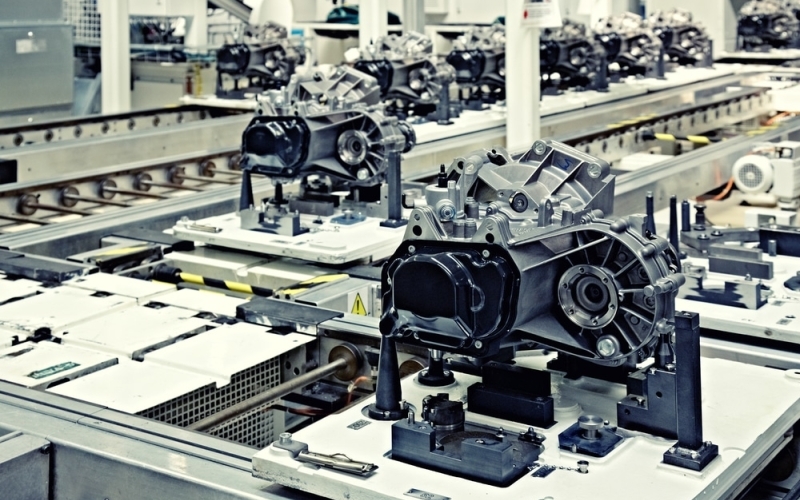
The manufacturing industry has always been at the forefront of technological innovation. One of the key drivers behind this transformation is the advent and widespread adoption of machine tools. Machine tools, which are used to shape, cut, and form materials into desired forms, have revolutionized the manufacturing landscape by enabling higher precision, efficiency, and scalability. Here, we explore the significant benefits of machine tools in manufacturing and why they are indispensable in today’s industrial environment.
Enhanced Precision and Accuracy
Machine tools are designed to perform highly accurate and precise operations, which are often impossible to achieve manually. With advanced features like computer numerical control (CNC), manufacturers can produce components with tolerances as tight as a few micrometers. This level of precision ensures that products meet strict quality standards and function reliably in their respective applications, whether in automotive, aerospace, or consumer electronics industries.
Increased Productivity
One of the most significant advantages of machine tools is their ability to operate continuously, leading to increased productivity. Unlike human operators, machines don’t require breaks, vacations, or shifts. CNC machines, in particular, can run 24/7, producing components at a consistent rate without compromising quality. This scalability makes them ideal for high-volume production.
Cost Efficiency
While the initial investment in machine tools might be significant, the long-term cost savings are substantial. By automating repetitive and labor-intensive tasks, manufacturers can reduce labor costs and minimize waste. Additionally, machine tools improve material utilization, ensuring that raw materials are used efficiently, which further reduces costs.
Improved Safety
Manual machining and fabrication processes can expose workers to various risks, including injuries from sharp tools, heavy materials, and hazardous environments. Machine tools, particularly automated ones, minimize human intervention, significantly reducing the likelihood of accidents. Modern machines also come equipped with advanced safety features such as emergency stop functions and protective enclosures, further enhancing workplace safety.
Flexibility and Customization
Modern machine tools, especially those integrated with CNC technology, offer unparalleled flexibility. Manufacturers can quickly reprogram machines to produce different components without the need for significant downtime or retooling. This flexibility is essential for industries that require customization or frequent design changes, such as the medical device or aerospace sectors.
Consistency and Repeatability
Human operators, no matter how skilled, are prone to errors and variations in their work. Machine tools eliminate this variability, ensuring consistent quality across large production runs. This repeatability is crucial in industries where uniformity is critical, such as the production of engine parts or electronic components.
Integration with Smart Manufacturing
The rise of Industry 4.0 has introduced the concept of smart manufacturing, where machines, systems, and processes are interconnected through the Internet of Things (IoT). Modern machine tools can integrate seamlessly with these smart systems, enabling real-time monitoring, predictive maintenance, and data-driven decision-making. This connectivity enhances efficiency and reduces downtime, giving manufacturers a competitive edge.
Environmental Benefits
Many modern machine tools are designed with sustainability in mind. They consume less energy, reduce material waste, and operate more efficiently compared to traditional methods. Additionally, automated processes often result in fewer defective products, which means fewer resources are wasted. These benefits align with the growing emphasis on environmentally responsible manufacturing.
Shorter Lead Times
By streamlining production processes and reducing the need for manual intervention, machine tools help manufacturers meet tight deadlines. Faster production cycles mean that companies can respond quickly to market demands and gain an edge over competitors.
Skill Development and Workforce Evolution
While machine tools reduce the need for manual labor, they create opportunities for skill development in areas like programming, machine operation, and maintenance. This shift allows workers to transition into higher-value roles, contributing to workforce evolution and overall industrial advancement.
Machine tools have fundamentally transformed the manufacturing industry, providing benefits that range from enhanced precision and productivity to cost efficiency and environmental sustainability. As technology continues to evolve, the capabilities of machine tools are expected to expand even further, opening up new possibilities for innovation and growth in manufacturing. For businesses aiming to remain competitive in a rapidly changing industrial landscape, investing in advanced machine tools is not just an option—it’s a necessity.
Comments (0)
📌 By commenting, you agree to follow these rules. Let’s keep HowweBiz a safe and vibrant place for music lovers!












